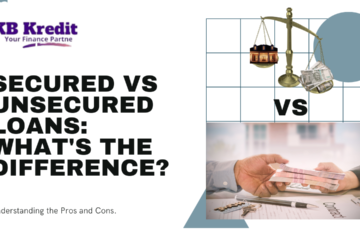Table of Contents
Introduction of unsecured loan:

Unsecured Funds provide a financial lifeline without the need for collateral. In this blog, we delve into the dynamics of unsecured Funds, exploring their benefits, considerations, and how businesses can leverage them for financial flexibility.
Defining Unsecured Funds:
Unsecured Funds, unlike secured ones, don’t require collateral. Lenders extend credit based on the borrower’s creditworthiness, financial history, and ability to repay. This makes unsecured loans accessible to a broader range of borrowers.
Accessibility and Speed:
Unsecured Funds offer quick access to funds. The absence of collateral simplifies the application process, reducing paperwork and approval timelines. This makes unsecured Funds an attractive option for businesses in need of prompt financial support.
Risk Factors for Lenders:
Since there’s no collateral, lenders face higher risks with unsecured Funds. To mitigate this, they scrutinize borrowers’ creditworthiness rigorously. Businesses with strong credit profiles are more likely to secure favorable terms.
Interest Rates and Terms:
The rates of interest for unsecured Funds are usually higher compared to rates on secured loans. This compensates for the increased risk borne by lenders. The loan terms, including repayment periods, are influenced by the borrower’s creditworthiness.
Credit Score Impact:
Successfully repaying unsecured Funds positively impacts the borrower’s credit score. Timely repayments build a favorable credit history, opening doors to better loan terms and increased financial opportunities.
Business Use Cases:
Unsecured Funds are versatile and can fund various business needs. From working capital requirements to equipment purchases and marketing initiatives, businesses can utilize these loans strategically.
Flexibility in Spending:
Unsecured Funds provide flexibility in fund utilization. Businesses can allocate funds based on their priorities, adapting to changing market conditions or seizing growth opportunities as they arise.
Potential Challenges:
While unsecured Funds offer advantages, they may pose challenges for businesses with lower creditworthiness. Higher interest rates and stricter eligibility criteria are factors to consider.
Risk Management for Borrowers:
To navigate potential challenges, businesses must manage risks proactively. This includes maintaining a strong credit profile, budgeting for repayments, and having a clear plan for fund utilization.
NKB Kredit’s Unsecured Funding Solutions:
NKB Kredit, a trusted financial partner, excels in providing tailored unsecured Funding solutions. With a focus on transparency and efficiency, NKB Kredit assists businesses in accessing unsecured loans that align with their financial goals.
Conclusion:

Unsecured Funds offer a pathway to financial support without the burden of collateral. Understanding the dynamics, risks, and benefits is crucial for businesses exploring this financing option. With the right approach, businesses can leverage unsecured loans strategically, fostering growth and financial resilience.
FAQs: Addressing Common Queries about Unsecured Loans
Q1: What is the main difference between secured and unsecured loans?
Secured loans require collateral, while unsecured Funds do not.
Q2: Can I get an unsecured loan with bad credit?
It may be more challenging to get approved for an unsecured Fund with bad credit, but options such as personal loans for bad credit or secured credit cards may be available.
Q3: How do unsecured loans affect my credit score?
Timely repayments on unsecured Funds can positively impact your credit score, while defaults or late payments can have a negative impact.
Q4: What should I consider before applying for an unsecured loan?
Assess your financial situation, research lenders, understand the terms and conditions, and consider the impact on your credit score.
Q5: How can I avoid defaulting on an unsecured loan?
Create a repayment plan, track your payments, prioritize loan repayments, and seek assistance if facing financial hardship.






